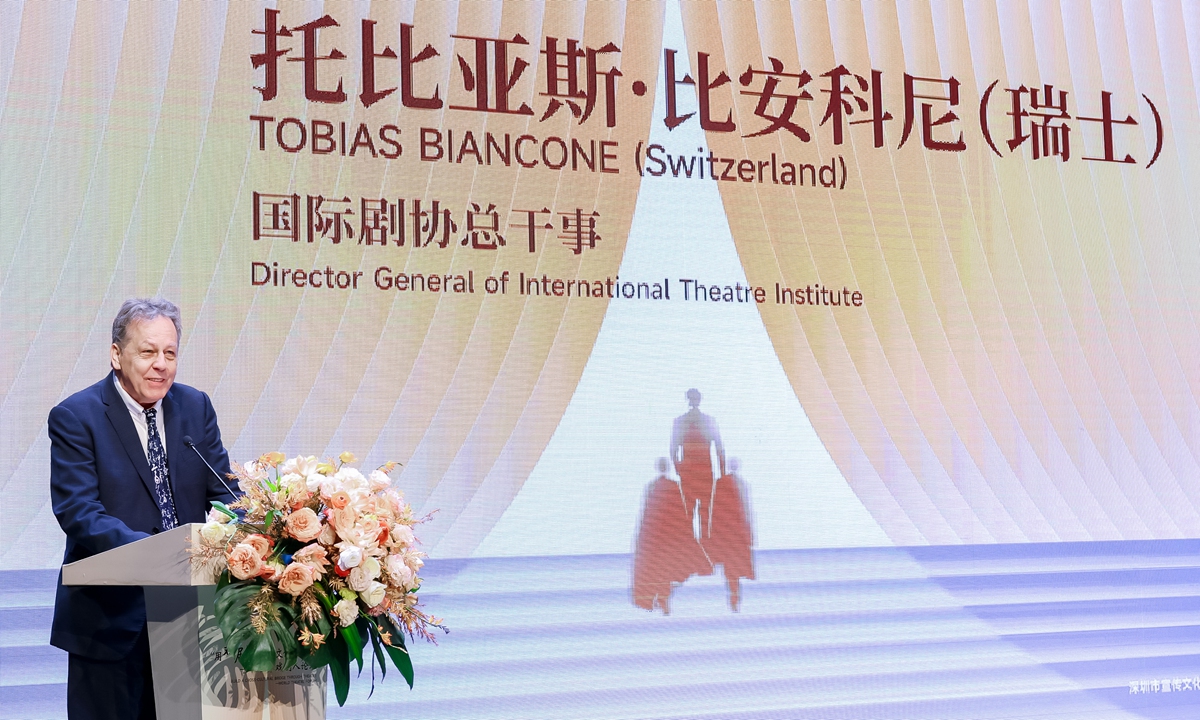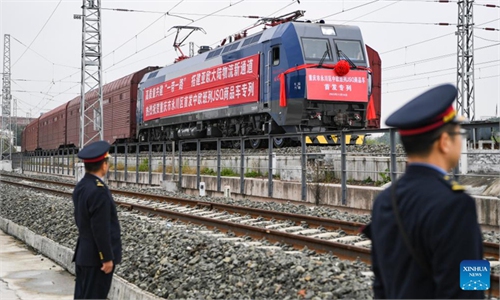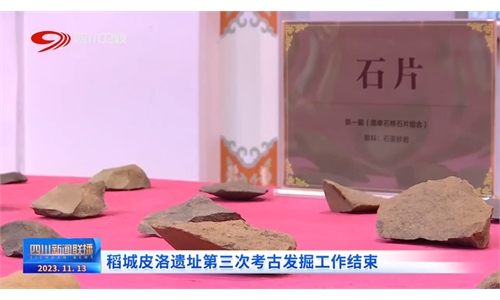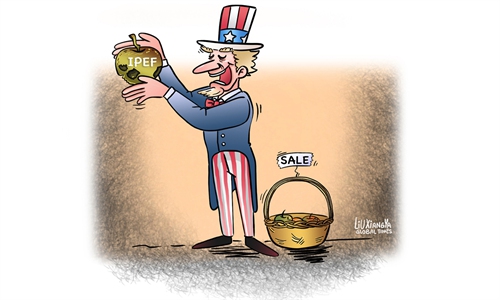ARTS / CULTURE & LEISURE
World theater forum in Shenzhen builds cross-cultural bridges

Photo: Xu Liuliu/GT
To perform or not to perform? This is no longer a question for performing artists as the COVID-19 pandemic is over. The only question that lies ahead now is how to unite as one to boost the performing arts on stages across the world.
Heads of international theater organizations and theater troupes from China, Switzerland, Bulgaria, Georgia, Japan, South Korea and other countries and regions gathered in Shenzhen, South China's Guangdong Province, for theater festivals to build a cross-cultural bridge through the art of theater.
"Today's global situation shows us that building bridges through the arts, especially the performing arts and even more concrete, the theatrical arts, is essential for creating mutual understanding and bringing about a peace that lets each of us and everyone to live a good life," Tobias Biancone, director-general of the International Theatre Institute (ITI), told the Global Times on Wednesday.
In his eyes, the importance of building bridges lies in the idea that "the theater arts are the art of dialogue. You can experience this whenever you watch a performance, or even if you are part of a performance. In a great play, the actress and actors have a dialogue with each other."
As Shenzhen is hosting the China Campus Theatre Festival, BeSeTo Theatre Festival and Nanshan Theatre Festival, the renowned theater professional has watched a number of international shows together with other experts and audiences.
After watching Chinese stage adaption Six Chapters of a Floating Life, an autobiography of Shen Fu, who lived during the Qing Dynasty (1644-1911), he was astonished to see the diversity and surprises brought by China's theater arts, not just Peking Opera, but also a number of different art forms.
"Let's not forget one ingredient of intercultural or cross cultural bridge building that is stronger than watching a show. It is opening the door to another culture by giving an individual the opportunity to be educated, even if it's only a little bit in an art form," Biancone said.
"Exchanges will open the door for mutual respect and peace all over the world and Shenzhen is able to build itself as a window for China's performing arts."
Chen Yongquan, Party chief of the China Drama Association, said that he hopes to bring a drama feast to Shenzhen audiences and use drama to build emotional bonds and spiritual bridges for people around the world.
An important part of the festivals, the World Theatre Forum has seen experts, theater heads and directors share their thoughts on cross-cultural exchanges through theater.
For Cho Man-soo, a drama critic and director from South Korea, said the BeSeTo Festival serves as an exchange platform for theater practitioners from China, South Korea and Japan, as the three countries have taken part in it for decades.
"Traditions connect us and we still recognize their importance. The sought-after traditions for the BeSeTo Festival should not merely be those with uninterrupted historical legacies but also traditional formats capable of uniting artists and audiences from a multitude of nations, resonating with them and facilitating cross-cultural communication," he said.
During his speech, Yin Xiaodong, president of National Academy of Chinese Theatre Arts, said he hopes to encourage young people to take part in cross-cultural exchanges as theater stands as one of the most distinctive art forms worldwide, acting as an essential lens through which people comprehend the world and perceive life. Asian art forms such as India's Sanskrit dramas, Chinese Xiqu, the Korea's Pansori, and Japan's Kabuki continue to evolve and flourish due to cultural exchanges.
Screenwriter He Jiping said that integrating Chinese culture's essence with the blend of Eastern and Western culture found in Hong Kong helped her form her own context.
"The cultures of the two places also emerge in my work, so I often say that it is the cultures of the Chinese mainland and Hong Kong that nourish my creations," she said.




